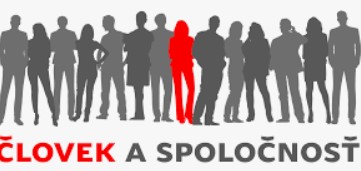Self-regulation as a link between goal attainment and decision-making
Self-regulation as a link between goal attainment and decision-making
Author(s): Simona ĎurbisováSubject(s): Psychology, Sociology, Social psychology and group interaction
Published by: SAV - Slovenská akadémia vied - Spoločenskovedný ústav SAV
Keywords: Self-regulation; Goal-attainment; Decision-making;
Summary/Abstract: Objective: Goal attainment is a complex process shaped by numerous decisions individuals make on their way to successfully reaching the desired objective. While there is no doubt about the impact decision-making and goal-attainment have on each other, a unified approach exploring how these processes work together is lacking. Nonetheless, the existing literature has suggested various possible ways of connecting them, such as through self-regulation. Self-regulation plays a pivotal role in an individual´s efforts in reaching a goal, especially in the case of distractions and obstacles which threaten the success of this process. The literature is not short of various approaches to different self-regulatory strategies, making it harder to integrate them in a way that would be helpful to the research in other areas. Some authors (Higgins et al., 2020) have pointed out a possible connection between the regulatory focus and a certain type of thinking that can be characteristic for specific decision-making styles. These decisional tendencies have also been recognized as not only patterns reflecting habits and thought processes but also as general tendencies of self-evaluation and carrying out intentions (self-regulation) (Thunholm, 2004). Self-regulation is present during both decision-making and goal-attainment and can serve as one of the possible links between these processes; there is some evidence of a relationship between certain decision-making styles or mal/adaptive strategies and self-regulation in general (Thunholm, 2004; Halama, 2017), and there have been studies which have focused on specific self-regulatory strategies, such as implementation intentions and the regulatory focus in connection with cognitive and decision-making styles, and the evaluation of sequentially presented information (Bieleke & Keller, 2019; Bullard et al., 2017; Ďurbisová, 2020). Some recent studies have focused on specific aspects of the decision-making process during goal attainment. These aspects could be considered manifestations of self-regulation and have been shown to be related to action crisis and selected goal characteristics (Bavoľár et al., 2021; Ďurbisová & Bavoľár, 2021). This novel approach might act as an important impetus for further research. Considering the role of self-regulation in both the decision-making and the goal attainment process and focusing on other specific self-regulatory strategies, such as implementation intentions or the regulatory focus, might provide a better insight into goal-directed behavior. As a result, this could lead to enhancements in research methods and specific strategies and training programs aimed at more effective ways of reaching goals. Conclusion: The existing literature provides the basis for connecting decision-making and goal-attainment in a way that might be beneficial for further research. The goal of this paper was to explore the importance of focusing on self-regulation and specific self-regulatory strategies as a link between these processes, and to outline the possible applications in psychological research and practice.
Journal: Človek a spoločnosť
- Issue Year: 25/2022
- Issue No: 2
- Page Range: 1-11
- Page Count: 11
- Language: English

